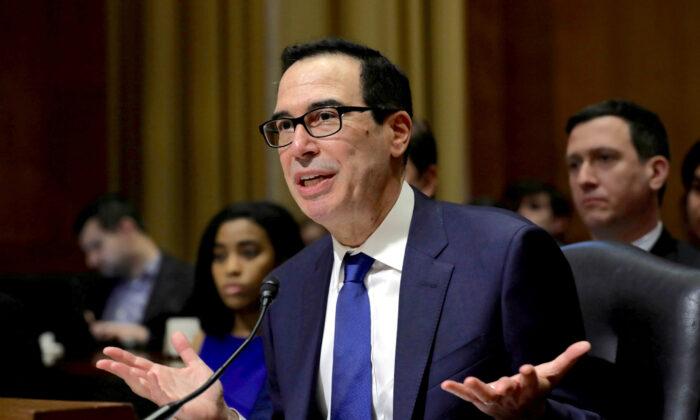The Treasury and the IRS said in a statement that while the April 15 filing deadline will remain in place, individuals and corporations will be able to postpone the deadline for certain tax payments to July 15. The measure will keep about $300 billion of additional liquidity in the economy, they said in a statement.
Individuals and other non-corporate tax filers would be able to defer up to $1 million of federal income tax, including for self-employment taxes, until the July deadline, while corporate taxpayers could defer up to $10 million in tax payments.
“We encourage those Americans who can file their taxes to continue to file their taxes on April 15 because for many Americans, you will get tax refunds and we don’t want you to lose out on those tax refunds,” Mnuchin said. “We want you to make sure you get them.”
The tax relief is for federal returns only. Individual states will have to decide on when residents should pay their taxes. The delay is also for individuals who owe $1 million or less and corporations that owe $10 million and less, according to the Treasury secretary.
“We are going to use all the tools we have,” he said. “And what tools we don’t have, we’re going to go to Congress.”
The move drew praise from some members of Congress.
“This action takes one burden off the backs of taxpayers, who are first and foremost trying to keep themselves and their loved ones safe,” said Sen. Robert Menendez (D-N.J.) in a statement.
“Unfortunately, this important payment relief does not apply to the filing of tax returns,” he said in a press release. “The concern and confusion related to coronavirus is causing cities across the country to shut businesses down, and Treasury’s recent decisions do not reflect the real-world difficulties tax practitioners and their clients are experiencing.”
“Given the current environment, this extension process is impossible for many taxpayers. Treasury must act immediately by extending the April 15th filing deadline and providing more clarity on the details of recent relief actions.”






Friends Read Free